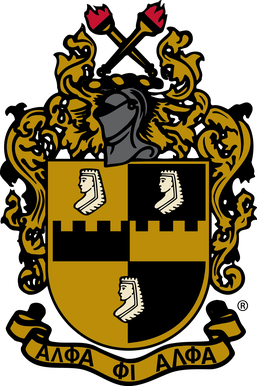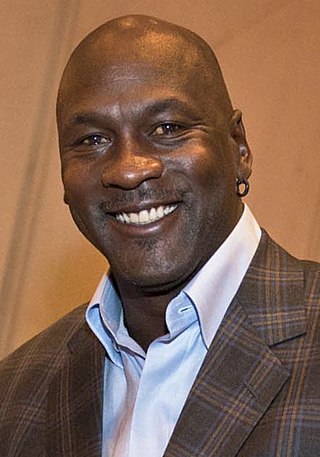
The Congress of Racial Equality (CORE) is an African-American civil rights organization in the United States that played a pivotal role for African Americans in the civil rights movement. Founded in 1942, its stated mission is "to bring about equality for all people regardless of race, creed, sex, age, disability, sexual orientation, religion or ethnic background." To combat discriminatory policies regarding interstate travel, CORE participated in Freedom Rides as college students boarded Greyhound Buses headed for the Deep South. As the influence of the organization grew, so did the number of chapters, eventually expanding all over the country. Despite CORE remaining an active part of the fight for change, some people have noted the lack of organization and functional leadership has led to a decline of participation in social justice.

Elaine Brown is an American prison activist, writer, singer, and former Black Panther Party chairwoman who is based in Oakland, California. Brown briefly ran for the Green Party presidential nomination in 2008.

Morehouse College is a private historically Black, men's, liberal arts college in Atlanta, Georgia. Anchored by its main campus of 61 acres (25 ha) near Downtown Atlanta, the college has a variety of residential dorms and academic buildings east of Ashview Heights. Along with Spelman College, Clark Atlanta University, and the Morehouse School of Medicine, the college is a member of the Atlanta University Center consortium.

Spelman College is a private, historically Black, women's liberal arts college in Atlanta, Georgia. It is a founding member of the Atlanta University Center academic consortium. Founded in 1881 as the Atlanta Baptist Female Seminary, Spelman awarded its first college degrees in 1901 and is the oldest private historically Black liberal arts institution for women.

Florida Agricultural and Mechanical University (FAMU), commonly known as Florida A&M, is a public historically black land-grant university in Tallahassee, Florida. Founded in 1887, It is the third largest historically black university in the United States by enrollment and the only public historically black university in Florida. It is a member institution of the State University System of Florida, as well as one of the state's land grant universities, and is accredited to award baccalaureate, master's and doctoral degrees by the Commission on Colleges of the Southern Association of Colleges and Schools.

Omega Psi Phi Fraternity, Inc. (ΩΨΦ) is a historically African-American fraternity. The fraternity was founded on November 17, 1911, the first at a historically black university, by three Howard University students, Edgar Amos Love, Oscar James Cooper and Frank Coleman, and their faculty adviser, Dr. Ernest Everett Just. Since its founding the organization has chartered over 750 undergraduate and graduate chapters.
Dwight Tillery is an American politician and social justice activist with more than 50 years of service working towards equity for African Americans and other minorities in politics, business and public health. His leadership transformed the lives of Black residents in the city of Cincinnati in the areas of racial justice, education, civics, community health and politics. Tillery was the first popularly elected Black Mayor in Cincinnati, Ohio, serving from 1991-1993, and he served on the Cincinnati City Council for 8 years. Tillery co-founded the United Black Students Association at the University of Cincinnati, was the Founder, President and CEO of The Center for Closing the Health Gap, and co-founded The Black Agenda of Cincinnati. Tillery also served as an Adjunct Professor at the University of Cincinnati and at Miami University.

Alpha Phi Alpha Fraternity, Inc. (ΑΦΑ) is the oldest intercollegiate historically African American fraternity. It was initially a literary and social studies club organized in the 1905–1906 school year at Cornell University but later evolved into a fraternity with a founding date of December 4, 1906. It employs an icon from Ancient Egypt, the Great Sphinx of Giza, as its symbol. Its aims are "Manly Deeds, Scholarship, and Love For All Mankind," and its motto is "First of All, Servants of All, We Shall Transcend All." Its archives are preserved at the Moorland-Spingarn Research Center.

Phi Beta Sigma Fraternity, Inc. (ΦΒΣ) is a historically African American fraternity. It was founded at Howard University in Washington, D.C., on January 9, 1914, by three young African-American male students with nine other Howard students as charter members. The fraternity's founders, A. Langston Taylor, Leonard F. Morse, and Charles I. Brown, wanted to organize a Greek letter fraternity that would exemplify the ideals of Brotherhood, Scholarship and Service while taking an inclusive perspective to serve the community as opposed to having an exclusive purpose. The fraternity exceeded the prevailing models of Black Greek-Letter fraternal organizations by being the first to establish alumni chapters, youth mentoring clubs, a federal credit union, chapters in Africa, and a collegiate chapter outside of the United States. It is the only fraternity to hold a constitutional bond with a historically African-American sorority, Zeta Phi Beta (ΖΦΒ), which was founded on January 16, 1920, at Howard University in Washington, D.C., through the efforts of members of Phi Beta Sigma.

Georgia Highlands College is a public college in northwest Georgia. It has locations in Floyd County, Cartersville, Marietta, and Dallas and serves the northwest parts of Georgia, as well as parts of east Alabama and southeast Tennessee. A member of the University System of Georgia, the college was originally a community college and has since expanded to also offer bachelor degrees. Between 5,700 and 6,100 students are enrolled at GHC in any given semester, representing 49 different countries. In 2020, the college had a record high number of graduates and an economic impact of over $181 million.
While the traditional social fraternity is a well-established mainstay across the United States at institutions of higher learning, alternatives – in the form of social fraternities that require doctrinal and behavioral conformity to the Christian faith – developed in the early 20th century. They continue to grow in size and popularity.

Georgia Southwestern State University (GSW) is a state public university in Americus, Georgia. Founded as the Third District Agricultural and Mechanical School in 1906, the university was established and is administrated by the Georgia Board of Regents of the University System of Georgia. The historic core of the campus is listed in the National Register of Historic Places.

Kappa Alpha Psi Fraternity, Inc. (ΚΑΨ) is a historically African American fraternity. Since the fraternity's founding on January 5, 1911, at Indiana University Bloomington, the fraternity has never restricted membership on the basis of color, creed or national origin though membership traditionally is dominated by those of African heritage. The fraternity has over 160,000 members with 721 undergraduate and alumni chapters in every state of the United States, and international chapters in the United Kingdom, Canada, Germany, South Korea, Japan, United States Virgin Islands, Nigeria, South Africa, the Dominican Republic, and The Bahamas.

100 Black Men of America is a men's civic organization and service club that works in the field of education and empowerment of African-American children and teens. As of 2009, the organization has 110 chapters and more than 10,000 members in different cities in the United States and throughout the world. The members are predominantly African-American professionals, businessmen, civic leaders and administrators, educators, and other occupations.

The African-American upper class, sometimes referred to as the black upper class, the black upper middle class or black elite, is a social class that consists of African-American individuals who have high disposable incomes and high net worth. The group includes highly paid white-collar professionals such as academics, engineers, lawyers, accountants, doctors, politicians, business executives, venture capitalists, CEOs, celebrities, entertainers, entrepreneurs and heirs.

A fraternity or fraternal organization is an organization, society, club or fraternal order traditionally of men associated together for various religious or secular aims. Fraternity in the Western concept developed in the Christian context, notably with the religious orders in the Catholic Church during the Middle Ages. The concept was eventually further extended with medieval confraternities and guilds. In the early modern era, these were followed by fraternal orders such as Freemasons, the Rosicrucian Society of England, and Odd Fellows, along with gentlemen's clubs, student fraternities, and fraternal service organizations. Members are occasionally referred to as a brother or – usually in a religious context – frater or friar.

Phi Rho Eta (ΦΡΗ) is a nationally incorporated fraternity that was founded on August 22, 1994, at Southern Illinois University in Carbondale, Illinois. The founders are LaMont Taylor and Marvin Randolph.

The Georgia Alliance of African American Attorneys (GAAAA) is a minority bar association in the state of Georgia in the United States. Founded in 1992, the GAAAA was created as a result of the legal case of Tyrone Brooks, et al., v. Georgia State Board of Elections and Max Cleland, Secretary of State and Chairman of the Georgia State Board of Elections. The State of was accused of not having enough diversity in judges. The litigation resulted in Georgia having the second-largest number of African American judges in any American state—second only to the state of Michigan.
In North America, fraternities and sororities are social organizations at colleges and universities. They are sometimes collectively referred to as Greek life. Generally, membership in a fraternity or sorority is obtained as an undergraduate student but continues thereafter for life. Some accept graduate students as well. Individual fraternities and sororities vary in organization and purpose, but most share five common elements:
- Secrecy
- Single-sex membership
- Selection of new members based on a two-part vetting and probationary process known as rushing and pledging
- Ownership and occupancy of a residential property where undergraduate members live
- A set of complex identification symbols that may include Greek letters, armorial achievements, ciphers, badges, grips, hand signs, passwords, flowers, and colors

Tyrone C. Howard is an American educator, academic, and author. He is a professor of Education in the School of Education and Information Studies and the Founder and executive director of the Black Male Institute at the University of California, Los Angeles. He also serves as the Pritzker Family Endowed Chair in Education to Strengthen Children & Families, Faculty Director of UCLA Center for the Transformation of Schools, as well as Director of UCLA Pritzker Center for Strengthening Children & Families.
















